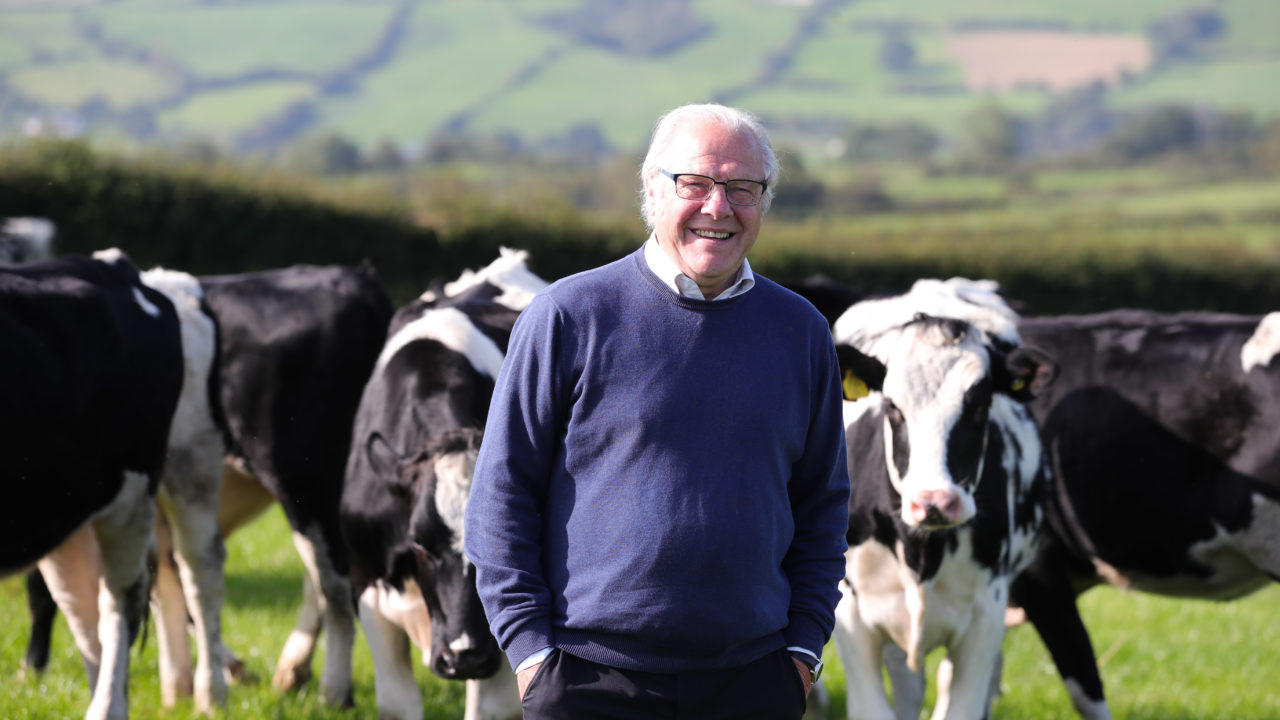The Dairy Council for Northern Ireland has highlighted the impact that collapsing dairy markets could have on farmgate milk prices this year.
The organisation’s chief executive, Dr. Mike Johnston, said:“2022 saw record milk prices based on strong dairy markets that reflected a global imbalance between supply and demand.
“As we moved into the second half of the year, it was evident that demand was burning off, and more recently the spread of Covid-19 in China has resulted in falling demand.
“Add to this the impact of rising cost of living on consumer purchasing and at the brink of 2023 significant market correction is taking place with little evidence of markets bottoming out.
“The outlook for milk prices is not optimistic.”
Dairy Council sustainability
According to Johnston, the issue of sustainability will underpin the Dairy Council agenda throughout 2023 and beyond.
He has confirmed that plans to put in place a new sustainability body, representing the interests of the entire agri-food industry, are developing apace.
“The plan is for an industry-led body with the scope to deliver a coherent response to the challenge of climate change, the stretching targets of legislation and the need to retain a viable food production base here in Northern Ireland,” Johnston said.
“Establishing a sustainability body will provide Northern Ireland with a competitive advantage and will champion agri-food, and farming in particular, to be key parts of the solutions for longer term twin goals of mitigating climate change and ensuring food security,” he added.
The Dairy Council representative indicated that discussions involving key agri-food sector groups had taken place with the aim of developing a governance structure for the new body.
“There has been an encouraging response so far across the entire agri-food spectrum for the establishment of this new body,” Johnston continued.
“The plan is that the board will be made up of farmer representatives and people at chief executive level from the various sectors, so the new organisation will operate at a very high level and provide the necessary strategic direction.
“This will be farmers and processors working together in common cause.”
No funding mechanism has, as yet, been agreed for the new organisation.
DAERA cooperation
However, Mike Johnston believes that delivering a range of projects for the Department of Agriculture, Environment and Rural Affairs (DAERA) will be an important part of the business plan moving forward.
“But, fundamentally, we are talking about an industry body that will be run by industry, for the benefit of industry and funded by industry.”
According to Johnston, this will involve the new body liaising with DAERA across a range of issues. But it will be very proactive in nature, especially in relation to the industry’s research agenda.
“If we are to achieve the various targets that the NI Climate Change Act has set, and those that our customers are demanding, we will need a lot of new tools in the toolbox in the coming years,” he said.
“We have world-class research facilities and researchers in Northern Ireland.
“Through the sustainability body industry and research, we will have the opportunity to come together to develop the tools that will allow our farmers and processors to continue to produce food to the highest quality and lowest carbon footprint.”
The Dairy Council chief executive concluded: “The key to enabling this research will be data, and one of the key roles of the sustainability body will be to bring together the various data sources that are already out there, and that will be generated in the future.
“There is a lot of information, already available from a wide range of sources. However, it cannot be accessed from a single source; it is all over the place.
“Bringing all of this information together will be highly beneficial, and will allow us to involve the range of elements of sustainability, including animal health and welfare.”
